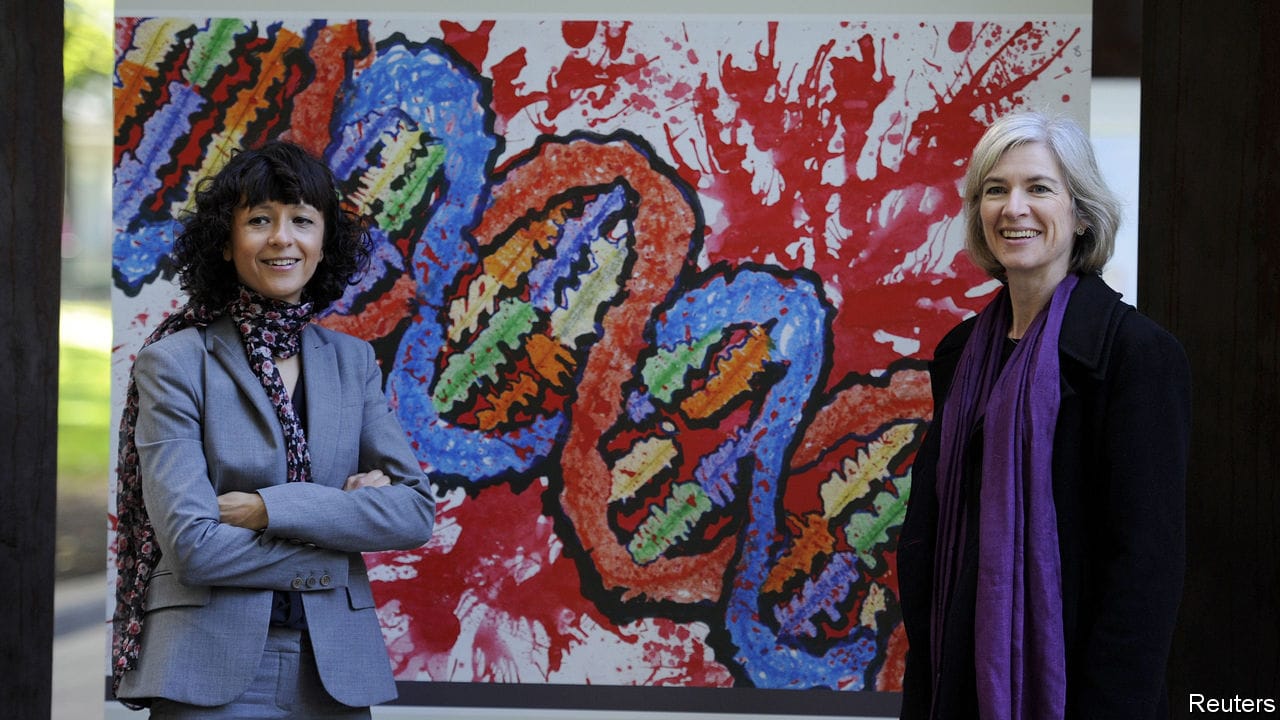- by
- 07 24, 2024
-

-
-
Loading

Loading

ALL ORGANISMS suffer from viral infections, and all have developed immune systems of one sort or another to combat them. Bacteria are no exception. Some snip small sequences of DNA from viral interlopers and copy them into their own genomes, thus creating a genetic scrapbook by which to recognise such aggressors, should they come again.Helping to work out the details of this process has won Emmanuelle Charpentier of the Max Planck unit for the science of pathogens, in Berlin, and Jennifer Doudna of the University of California, Berkeley, this year’s Nobel prize for chemistry. Their prize is not, though, for the mere discovery of a bacterial mechanism of immunity. It is also for the adaptation of that discovery into the most important gene-editing tool yet invented—CRISPR-Cas9—which is already helping to design disease-resistant crops and new therapies for cancer, and which may, perhaps, end hereditary disease in human beings.